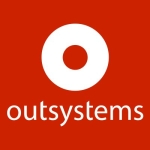What is our primary use case?
I am currently using it in my current organization. I have recently joined a new organization that also uses Pega, but in my previous organization, we used Pega for a couple of use cases where we set up automated workflows and other things.
We were doing straight-through processing and had everything set up. And we had RPA, and BluePrism bots there that we wanted to decommission, we set up Pega to do so.
We had issues with RP as a technology, as well as numerous challenges with some critical processes. Now, what used to always fail, too many bots and too many handoffs, both human and automated, is where we thought we would build APIs and integrate Pega.
What is most valuable?
When we were implementing in 2012, we also used Pega phones. It was a complete front office to back office interaction that was created, followed by case management. But I'm not sure, if you say case management as a feature, there's also knowledge management, which is present, but case management is what I've used extensively.
Overall, the ability to integrate with multiple applications and effective case management is the most valuable.
What needs improvement?
If it could also be integrated with robotics, it could help with a lot of things, even if we don't have APIs, we could still talk to other applications. If it could invoke a bot, for example.
It currently has OpenSpan, but OpenSpan is a different thing entirely, as you call it in robotics order.
If the BPM and robotics could be integrated more easily, then I believe both could be used.
It is not at all integrated. OpenSpan operates in a completely different manner, and Pega operates in a completely different manner. Part of it is called Pega robotics, but it has nothing in common, in my opinion.
For how long have I used the solution?
I have used Pega BPM for quite some time. I started using Pega BPM in 2012, it has been for 10 years.
However, because I was leading at the time, I didn't have much experience with the tool. There was one client at the time, where my role was to lead a 60-person team.
We actually did massive implementations. We used that finance framework to create a lot of workflows, at least three to four workflow applications that were quite large, as well as a lot of integrations and such.
We did use it extensively from 2012 to 2015. We are still using it.
What do I think about the stability of the solution?
Pega BPM is definitely a stable product.
What do I think about the scalability of the solution?
Pega BPM is scalable.
I am not sure how well it will work because we have a lot of requirements that I see today, we have a lot of emails, that we want to set up, all of these as workflow. I am still trying to understand and see how all of these emails will be converted to case management and email listeners, how much it can be scaled, and whether it'll work properly or not when the volumes increase because we have a huge demand right now. We also have to see how Pega will support us.
We haven't reached the point where we can scale to maximum capacity to see how the product performs. However, we can currently see that the product is scaling based on our requirements.
Because I am new to the organization I don't know how many users it has. But, in the previous organization, I believe there were many business units that used it, including the front of house and back of house. I wouldn't have a figure in mind.
At my previous company, I was one of the business units that used it. I wouldn't know, but from my business unit's perspective, the front of house was probably 200 people.
It is used daily, and we get through our smart forms, we get the inputs, and then the back office creates the interaction, and the back office works on it.
How are customer service and support?
They have a very good support system. You must have your contacts in place, and they must respond to you based on the escalated level. It's fairly consistent.
I would rate the technical support a four out of five.
How would you rate customer service and support?
Which solution did I use previously and why did I switch?
So far, I have primarily used Blue Prism and Automation Anywhere for RPA.
How was the initial setup?
The initial setup was difficult because, as previously stated, there were numerous integrations. However, we had excellent support from the ECS team, the Pega team, and the platform setup.
Once we got it set up, I would say we were pretty stable. Once done correctly and set up properly, it should be more stable than an RPA solution, in my opinion.
I would rate the initial setup a four out of five.
What about the implementation team?
The initial setup was done in-house.
It was in-house when I did my setup. It was not a cloud setup, but rather an in-house setup. We did an upgrade, and everything was done in-house.
What other advice do I have?
I would rate Pega BPM an eight out of ten.
Which deployment model are you using for this solution?
On-premises
Disclosure: My company does not have a business relationship with this vendor other than being a customer.






















